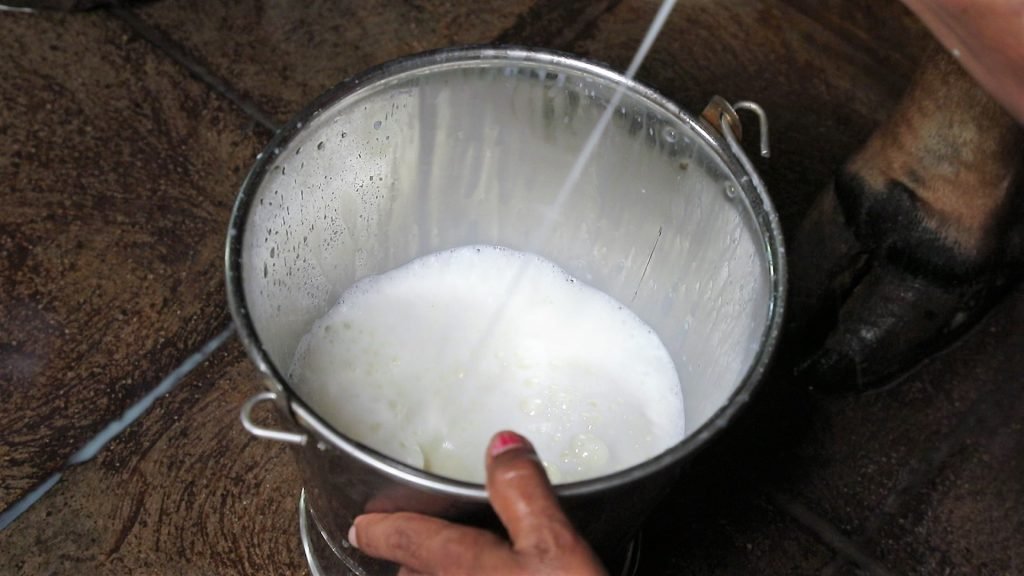How Healthy is Drinking Milk?



Cow’s Milk and Man
Drinking milk is the secretion of the mammary glands of mammals meant for feeding the new-born. it has been used as a staple food in all parts of the world. it is consumed by infants to old people across all societies. Cow’s milk may be the earliest health supplement used by man through the human civilization. The association of cows with the man, agriculture, transport, field work, etc. have made this commodity easily and abundantly available. These facts lead to the rise of milk to the status of staple food throughout all human civilizations.
Nutritional Components of Milk
It is one of the richest sources of nutrients. It contains a bulk amount of proteins and hence acts as a primary source of protein in the diet of vegetarians. In addition to protein, it contains varieties of nutritionally important components.
Milk contains about 87% water and hence acts as a good source of water in the diet. The energy content of the drinking milk lies in the protein, sugar, and fat content of the milk and varies among the cow breeds and also the type of nutrition they receive. Lactose represents the major sugar of the milk accounting for 4.9% of the whole milk. Milk is a good source of dietary fat as well. The average fat content of the milk is 3.4%, comprising 65% saturated, 29% monounsaturated, and 6% polyunsaturated fatty acids. Protein is the third nutritional component of the milk. The average protein content of the milk is 3.3% and is one of the so-called “complete proteins’, meaning protein containing all the essential amino acids.
The milk has abundant vitamins comprising vitamin A, B complex (B1, B2, B3, B5, B6, and B12), Vitamin C, D, E, and folic acid. These vitamins add to the nutritional index of the milk. Small proteins and enzymes important in the metabolism constitute another set of nutritional components present in the milk. Lactoferrin an iron-binding protein, concerned with iron absorption and immune response; Lactoperoxidase an antimicrobial enzyme and lipases concerned with the digestion and assimilation are of this group of proteins. Minerals are another category of nutritional components present in the milk. Calcium, Copper, Iron, Magnesium, Manganese, Phosphorus, Potassium, Selenium, Sodium, and Zinc are the important mineral elements found in the milk. All these minerals play important roles in metabolic pathways as parts of various enzymes or structural components of other proteins and many of them are involved in the maintenance of the homeostasis of the body. As milk contains all these components essential for human life, this is considered as a complete food.
Health Benefits of Drinking Milk
The drinking milk health facts are plenty. Besides providing high-quality nutrition, the milk provides several health benefits to people who take it regularly. However, milk is also known to cause food allergies in a marginal population known as “lactose intolerance”. But, for the majority of the people, milk brings marvelous health benefits. The calcium and other minerals present in the milk help in bone health and regeneration processes. It has been reported that consumption of raw milk helps in relieving arthritis. Several components in the milk such as calcium, vitamin D, Conjugated Linoleic Acid (CLA), whey proteins and sphingomyelin have been proved protective against various types of cancers. There are conflicting data and information regarding the negative impact of the milk on human health such as the risk of cardiovascular diseases, diabetes, etc. which needs further research on large populations, human races, and milk types. But the known health benefits of the milk really outweigh the possible health risks of milk consumption.
Help Us Now

Donate to Surabhivana Gaushala to save and protect Indian Cow Breeds.
All donations are exempt under Section 80G of the Income Tax Act, 1961. All donation receipts shall be mailed to the address given by the donor or may be collected in person, at request.
Click the below button to donate through credit cards/debit cards or Net Banking via Razor Pay.
